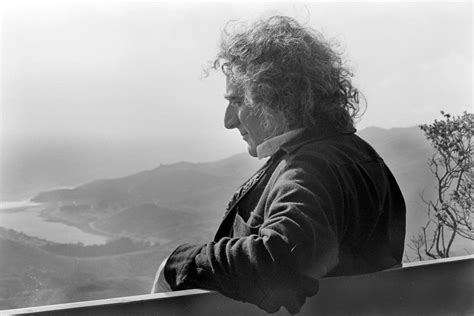A Quote by Thomas Kuhn
Related Quotes
Our minds are specifically adapted to developing certain theories, and we have a science if the theories that are available to our minds happen to be close to true. Well, there is no particular reason to suppose that the intersection of true theories and theories that are accessible to the mind is very large. It may not be very large.
One of the most difficult features of direct experience is that it is unfiltered by any theories or expectations. It's hard to observe without imposing a theory to explain what we're seeing, but the trouble with theories, as Einstein said, is that they explain not only what is observed, but what can be observed. We start to build expectations based on our theories.
Why do people like America? They say, well, you have the largest military in the world. Because you have more people, et cetera. They like America for what we stand for. And one of the things, and I feel proud to be, what this president's for, the last seven years, is we have once again aligned our basic fundamental beliefs and principles with our conduct. And it matters. It matters in terms of our security. It matters in terms of our ability to influence the world. It matters in our ability to succeed.
We see that the environment is something to exploit, because we see the environment in terms of minerals for example, or forests, or even raw materials that we produce on our land, or even land itself. We see it in terms of what we can exploit rather than the medium in which all of these activities have to take place.
Facts and theories are different things, not rungs in a hierarchy of increasing certainty. Facts are the world's data. Theories are structures of ideas that explain and interpret facts. Facts do not go away while scientists debate rival theories for explaining them. Einstein's theory of gravitation replaced Newton's, but apples did not suspend themselves in mid-air pending the outcome.
When the function of libraries is put in terms of their contributions to the community, people see their centrality. The challenge to us is to continue to help them see it in those terms to describe our larger purposes. We must assert that libraries are central to the quality of life in our society; that libraries have a direct role in preserving democratic freedoms. Free access to information and the opportunity of every individual to improve his or her mind, employment prospects, and lifestyle are fundamental rights in our society.
Living as if the world out there were somehow separate from us opens the door to the belief system of judgement and the chemical expressions of that judgment in our bodies. Thus we tend to see our world in terms of good germs and bad germs, and use words such as toxins and waste to describe the by-products of the very functions that give us life. It is in such a world that our bodies may become a combat zone for forces at odds with one another, creating the biological battlegrounds that play out
Scientific theories need reconstruction every now and then. If they didn't need reconstruction they would be facts, not theories. The more facts we know, the less radical become the changes in our theories. Hence they are becoming more and more constant. But take the theory of gravitation; it has not been changed in four hundred years.






































